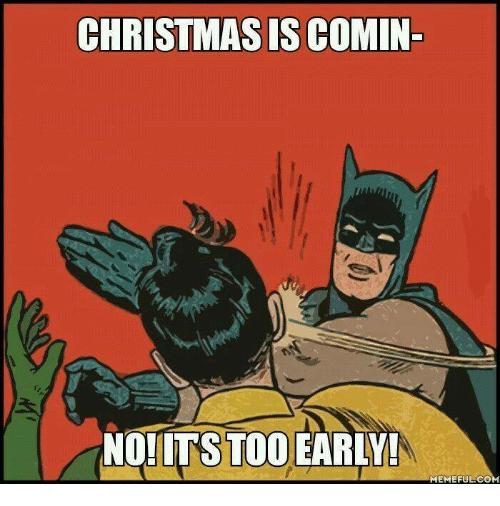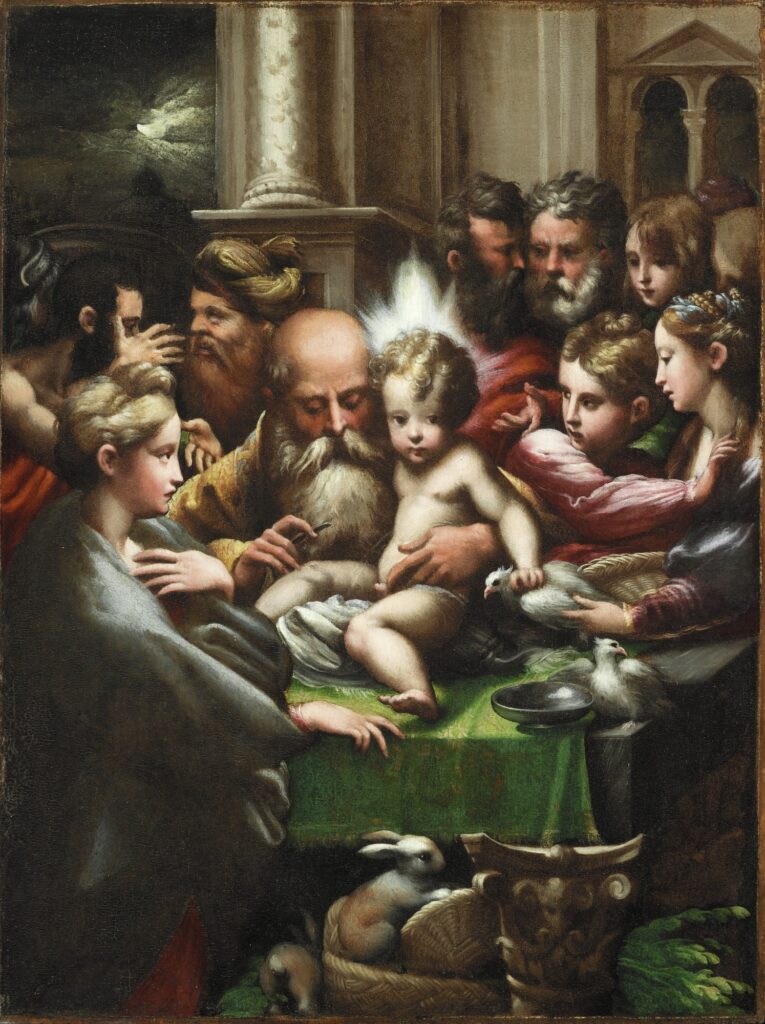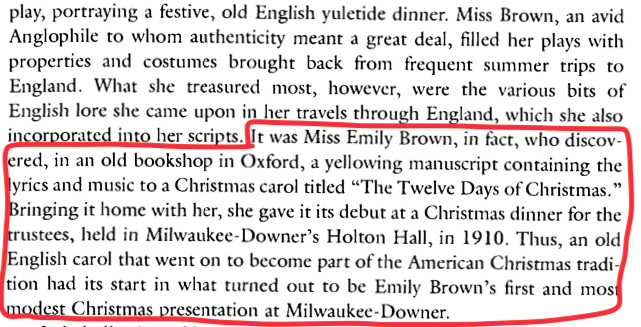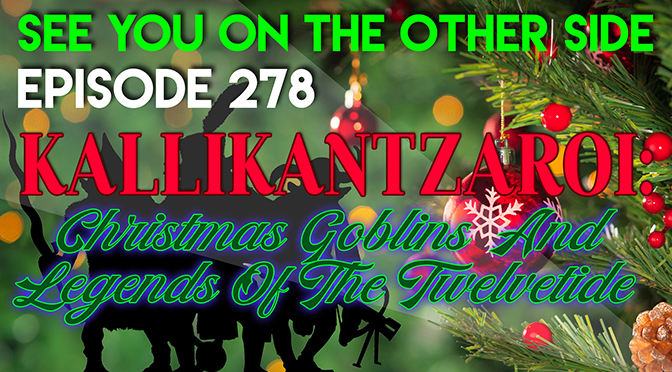Podcast: Play in new window | Download
Subscribe: Apple Podcasts | RSS | More
Every year, it seems like the Christmas season starts earlier and earlier, and you can see people getting annoyed about it on social media. Some people say it’s inappropriate to get your Christmas decorations up until the day after Thanksgiving. But it’s not like department stores are listening to this, they get their Holiday displays up immediately after Halloween is over. And while Jesus may be the reason for the season, Christmas is the reason that most retail outlets stay in business.

And of course, the early Church had no idea when Jesus’ actual birthday was, so they tried to picked a day that would be easy for recent converts. It wasn’t that unusual, because Roman emperors would arbitrarily pick a day to celebrate their birthdays instead of the actual anniversary of their birth.) December 25th worked out perfectly because you already had a Roman celebration called Saturnalia, which was their big yearly party complete with debauchery, pig offerings, human sacrifices of Gladiators, and customs that put the social order on its head like masters serving their slaves. In other Pagan areas you had Solstice celebrations and dancing and singing around the longest night of the year. People were used to having a party around December, so it seemed like putting Christmas in December was a perfect opportunity.

In modern America, we have been conditioned to celebrate before the Holidays, mostly to encourage the gift-giving aspect and to keep our retail stores in business. Back in the Middle Ages, the time before Christmas, Advent, was a time of fasting, much like Lent before Easter. They would sacrifice a little comfort to show their respect for the season and then start pigging out for 12 days starting on Christmas. Because there wasn’t a lot of agricultural work, peasants got the full Twlevetide off during the Middle Ages and there was some reason to party every day. It makes our official holidays of Christmas and New Year’s Day seem pretty weak by comparison. And they kept their Christmas decorations up until Candlemas on February 2nd, which was the date Mary went to temple and is supposed to have sacrificed a lamb and a dove as part of her post-birth purification ritual. So if anyone ever tells you magic isn’t part of the Judeo-Christian tradition, remind them that the Virgin Mary had to burn a baby sheep at a temple and slaughter a dove for her sins. And then we have a special Mass and Feast day to celebrate that animal sacrifice.

So, the time of year starting on Christmas and going until January 6th (which was the day that the Three Wise Men who were following the Star of Bethlehem showed up to meet Jesus in person) is known as the Twelvetide. Back in the Middle Ages, there was a Feast Day for each day of the 12 and now we only really think about it because of the “Twelve Days of Christmas” song.
And here’s a little hometown pride for us (being from Wisconsin). The song was introduced to the United States in Milwaukee! Emily Brown of the Downer Teacher’s College found the song in a book on a trip to England and then she brought it back for her own Christmas pageant in 1910 and that was the first time it was sung in America!

But because there was an almost two-week long religious holiday around the Solstice and New Year every year, plenty of legends and traditions of the Twelvetide arose themselves. We’ve talked in detail about Krampus and Iceland’s Christmas monsters, but another fun Yuletide beastie is the Kallikantzaroi, who are the Greek goblins of Christmas and are active during the 12 days of Christmas.

They appear differently in different areas of Greece, with some saying that they’re tall ugly humans with dark complexions and others saying they are short and hairy with bulging red eyes. They act more like drunken idiots than a force of evil by urinating in flowerbeds, breaking furniture, and basically wreaking havoc on the nights during the Christmastide.
The Greeks have a variety of ways to ward off the Kallikantzaroi including making crosses of coal on the windows of the house, burning a log from a thorny tree in the fireplace, or sometimes putting the bottom jaw of a pig behind the door or in the chimney (there’s our sacrifice again!)
In this episode, we talk about the Christmas goblins as well as other interesting legends and traditions of the Twelve Days of Christmas, including:
- How children born on Christmas Day have the risk of becoming Kallikantzaroi themselves!
- Also wreaking havoc is the English “Lord of Misrule” during Twelvetide
- How the Feast of the Innocents remembers the particularly nasty Christmas story of King Herod and his slaughter of children in Bethlehem
- The role reversals of Twelfth Night and their origin in Saturnalia
- Why fasting, once part of the Christmas tradition during Advent, is so popular among religions
For the song this week, we picked a classic English stomper that we know was regularly sung during the Twelvetide. It’s easy to make merry with this call and response Christmas party song from the 1700s, “I Saw Three Ships (Come Sailing In)”!
I saw three ships come sailing in,
On Christmas day, on Christmas day,
I saw three ships come sailing in,
On Christmas day in the morning.
And what was in those ships all three?
On Christmas day, on Christmas day,
And what was in those ships all three?
On Christmas day in the morning.
Our Saviour Christ and his lady
On Christmas day, on Christmas day,
Our Saviour Christ and his lady,
On Christmas day in the morning.
Pray whither sailed those ships all three?
On Christmas day, on Christmas day,
Pray whither sailed those ships all three?
On Christmas day in the morning.
Oh, they sailed into Bethlehem,
On Christmas day, on Christmas day,
Oh, they sailed into Bethlehem,
On Christmas day in the morning.
And all the bells on earth shall ring,
On Christmas day, on Christmas day,
And all the bells on earth shall ring,
On Christmas day in the morning.
And all the Angels in Heaven shall sing,
On Christmas day, on Christmas day,
And all the Angels in Heaven shall sing,
On Christmas day in the morning.
And all the souls on earth shall sing,
On Christmas day, on Christmas day,
And all the souls on earth shall sing,
On Christmas day in the morning.
Then let us all rejoice, again,
On Christmas day, on Christmas day,
Then let us all rejoice, again,
On Christmas day in the morning.
